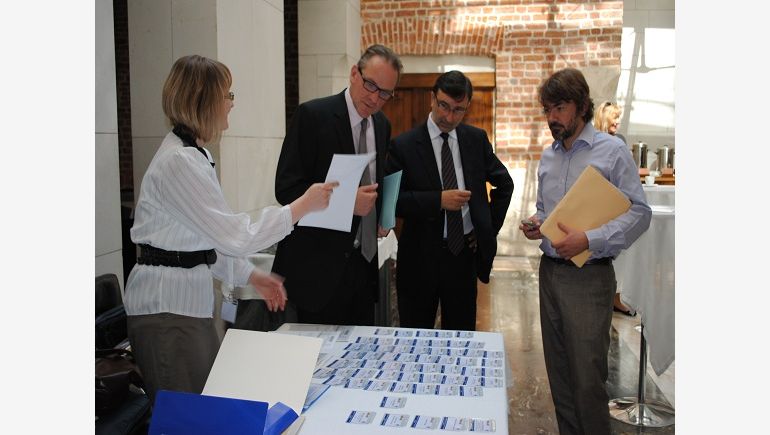The European Group of Valuers Associations (TEGoVA) currently comprises 45 valuers' associations from 26 countries, representing about 120 thousand valuers in Europe. The conference's chief organizer and host was the Polish Federation of Valuers' Associations (PFVA), which has been a member of TEGoVA since 1994. Among the attendees were not only TEGoVA members coming from Europe, but also special guests from outside the old continent, for instance from the USA.
The conference started with a presentation entitled “Two-speed Europe: the influence of rapid European integration at real estate markets and valuation” given by Michael MacBrien, Director General of the European Property Federation. At the beginning of his presentation, the speaker drew attention to the fact that the European Union has become self-divided by the level of integration. He also indicated areas where the European Union activities specifically imply further development of local real estate markets and outlined mechanisms through which individual members may be required to take action so long as the real estate market is considered to be vulnerable and unstable.
Next John Hockey, Chairman of the EVS Board, and Jeremy Moody, Valuation Policy Adviser to TEGoVA, presented European Valuation Standards 2012. The impact of decisions made by the main administrative and decision-making structures of the European Union on a situation at real estate market was again discussed. David Magor, Director General of the Institute of Revenues, Rating and Valuation, spoke about Developing a European Framework for Valuation Standards (DEFVAS). Polish Valuation Standards were analysed by Krzysztof Bratkowski, Vice President of the Polish Federation of Valuers' Associations (PFVA), who talked about the history and stages of work on the Polish standards over the years. Krzysztof Bratkowski reminded that on the assumption, the creation of PKZW, General National Principles of Valuation, was aimed at combining the experience of experts working on the Polish market with valuation methods used in other European countries. The presentation included the essence and significance of having valuation standards, contrary to some opinions finding legal regulations to be sufficient.
During the conference, it was repeatedly stated that a valuer not only provide clients with a property or a business valuation, but also give them expert advice. According to etymology of the word, a valuer is a person who “knows stuff.” As the real estate market is local and every participant has its own individual character, following only official procedures and legal regulations would be absolutely insufficient. Some prospects for European real estate markets from an investor’s perspective were presented in the next part of the conference. W. Joseph Houlihan, Chairman of the Managing Committee of the European Property Federation, CEO and Managing Director of Cohen & Steers Europe, outlined the impact of reducing the possibility of property financing and restrictive financial policy on property value.
The next speaker, a guest from USA, Sarah Steven, President of the Appraisal Institute, presented an American perspective on regulation in the field of property valuation. Other presentations were strictly related to the Recognised European Valuer Scheme, which is a new European quality mark in the appraisal industry. The Recognised European Valuer is designed to maintain high valuation standards for the valuation profession in whole Europe. Admission to the REV Scheme in case of valuers involves the support of TEGoVA and competitive advantage in practice. Roger Messenger and Tony Prior Hon, Chairman of the REV Recognition Committee, encouraged to take part in the scheme. Krzysztof Urbańczyk, President of the Polish Federation of Valuers' Associations (PFVA), also presented numerous advantages connected with participation in the program designed by TEGoVA.

